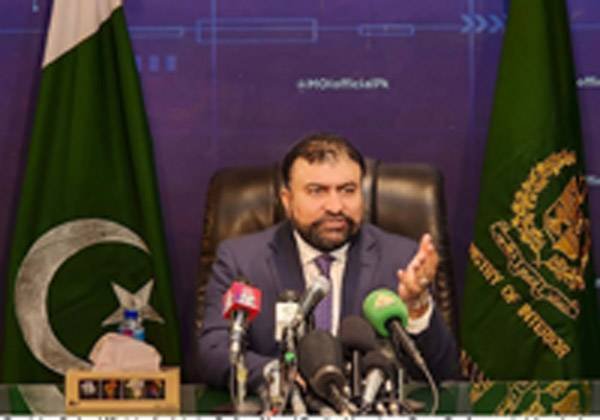Hafiz Mudassir Rizwan
Pakistan’s federation is at a critical crossroads, facing an unprecedented convergence of crises that threaten its unity and stability. Three pressing issues — the resurgence of terrorism by the Tehrik-i-Taliban Pakistan (TTP) in Khyber Pakhtunkhwa (KP), the escalating insurgency in Balochistan by the Baloch Liberation Army (BLA) and the Baloch Yakjehti Committee (BYC), and the contentious Cholistan Canal project sparking tensions with Sindh — present formidable challenges to the nation’s cohesion. If left unaddressed, these challenges could unravel the social and political fabric of the country.
Each of these crises arises from distinct regions that have long felt politically marginalized and neglected by the federal government. Grievances over resource allocation, political exclusion, and the perception that the federal structure favors Punjab, the country’s largest province, are central to the growing unrest. Compounding these internal divisions are credible reports of external interference from Pakistan’s regional adversaries, particularly in KP and Balochistan. Additionally, the ongoing economic stagnation limits the federal government’s capacity to respond effectively, while the military’s continued influence over civilian governance further complicates the matter. These are not mere administrative issues but existential threats to Pakistan’s unity and sovereignty.
In this crisis-ridden environment, the leadership options available to navigate Pakistan’s challenges are few and fraught with limitations. The Pakistan Muslim League-Nawaz (PML-N), led by Maryam Nawaz, remains largely focused on Punjab, lacking the national appeal required to unite the various federating units. On the other hand, Imran Khan’s Pakistan Tehreek-e-Insaf (PTI) has focused primarily on political disruption and opposition, further aggravating instability. The specter of direct military intervention, which has plagued Pakistan’s history, would only deepen existing tensions and entrench divisions.
In contrast, Bilawal Bhutto Zardari, leader of the Pakistan Peoples Party (PPP), emerges as a figure who could rise above the political fragmentation and offer a potential path to stability. Bilawal is not only deeply entrenched in the country’s political landscape but also enjoys international credibility, along with a party that has historically championed federal unity. He is in a unique position to address the ongoing crises while also shaping his political legacy for the future.
The resurgence of the TTP in Khyber Pakhtunkhwa has reversed the progress made over the last decade in stabilizing the region. Persistent attacks by the group on both security forces and civilians have destabilized the northwest, with the TTP’s operational freedom aided by sanctuaries across the Afghan border and alleged covert support from India. This dangerous situation can be traced back to the PTI government’s decision to repatriate Afghan militants to Pakistan, a move that effectively nullified the gains made by previous counterterrorism efforts.
Addressing the TTP threat requires a comprehensive, intelligence-driven military strategy within Pakistan, along with a concerted effort to eliminate cross-border sanctuaries. However, achieving this requires political consensus, which remains a major hurdle. The PTI, as the governing party in KP, has often been reluctant to take decisive action, possibly due to the fear of local backlash or lingering ideological affinities with the militants. The PML-N has historically failed to take a strong stance, as exemplified by Shehbaz Sharif’s controversial handling of the TTP issue in Punjab, where he called militants “brothers” and sought to appease them.
Bilawal, however, has a proven track record in rallying support against militancy, most notably through his backing of military operations in Swat and North Waziristan. The PPP has also played a key role in formulating the National Action Plan, which outlines a unified approach to combat terrorism. Bilawal’s recent calls for a revised security framework in his March 13 address to the National Assembly demonstrate his commitment to resolving the issue. His personal connection to the fight against terrorism, following the assassination of his mother, Shaheed Benazir Bhutto, gives him a unique resolve to tackle extremism head-on.
Pl subscribe to the YouTube channel of republicpolicy.com for quality podcasts:
Balochistan represents another critical challenge to Pakistan’s unity. The BLA has escalated its insurgency, carrying out 175 attacks in the past year, up from 110 the previous year, resulting in nearly 700 casualties. The assault on the Jaffar Express, which claimed 28 lives, showcased the group’s increasing tactical proficiency. While Pakistan accuses India of providing material support to the insurgents, the primary causes of unrest are domestic: prolonged neglect, underdevelopment, and political exclusion.
The BYC has further galvanized public discontent, heightening the risk of Balochistan detaching itself from Pakistan. As the PPP currently governs the province, Bilawal has a strategic advantage in addressing these challenges. He is in a position to engage with key Baloch leaders, such as Sardar Akhtar Mengal, Dr Abdul Malik Baloch, and Mahrang Baloch, offering them meaningful governance roles and ensuring transparent elections in line with Pakistan’s constitutional framework.
Balancing the demands of Balochistan’s political aspirations with the military’s security interests presents a delicate task, one that Bilawal has managed successfully in coalition governments since 2022. The PTI and PML-N, by contrast, have largely neglected the province and failed to provide meaningful solutions to the Baloch question.
Sindh is experiencing increasing tensions with the federal government over the Cholistan Canal project, an ambitious initiative under the Special Investment Facilitation Council’s Green Pakistan Initiative. While the project, which seeks to convert the Cholistan desert into productive farmland, is supported by Gulf investments, Sindh fears it will threaten the flow of the Indus River and disrupt its agricultural foundation. The federal government’s decision to move forward with the project has only exacerbated Sindh’s longstanding perception of political neglect and inequitable resource distribution.
The PTI has fueled these tensions, using them for political gain, while the PML-N’s Punjab-centric perspective has undermined its credibility as an impartial mediator. Bilawal, however, is deeply connected to Sindh and is well-placed to represent its interests in negotiations with the federal government. His leadership in this area can help broker a fair resolution to the dispute, ensuring that Sindh’s critical water needs are met.
Pakistan’s challenges are deeply rooted in the country’s internal divisions and compounded by regional and global dynamics. Economic stagnation, political instability, and external interference further exacerbate the situation. In this context, Bilawal Bhutto Zardari emerges as the leader best positioned to address the current crises and bring about a stable and unified Pakistan.
Bilawal’s leadership would offer a comprehensive strategy: decisive counterterrorism actions in KP, inclusive governance in Balochistan, and equitable negotiations with Sindh on water issues. His international credibility, along with his strong ties to key foreign governments and organizations, would also help Pakistan navigate external pressures, particularly in relation to India and Afghanistan.
This is a defining moment for Bilawal Bhutto Zardari. If he can successfully address these challenges, he could not only reshape Pakistan’s political landscape but also secure his place in the country’s history. The need for a unifying leader is critical; this moment must not be squandered. Bilawal’s ability to capitalize on this opportunity could determine the trajectory of Pakistan for decades to come.

















